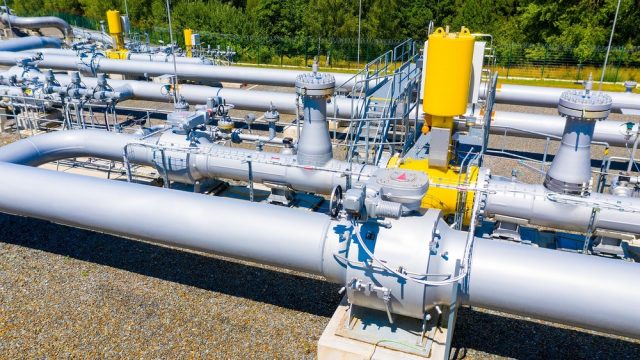
On 1 January 2025, Ukraine put an end to the transit of Russian gas to Europe by deciding not to renew the contract signed with Gazprom in 2019. This decision marked a milestone in the energy policy of the continent and opened a new chapter in the complex relations between Kyiv, Moscow, and the European Union.
The transit agreement was an important source of income for Ukraine, generating up to $1 billion annually in fees. However, Volodymyr Zelensky’s government prioritised a political and strategic objective: not to contribute, directly or indirectly, to financing Russia’s war machine.
Since 2022, Ukraine had warned that it would not renew the contract once it expired. This announcement gave both Kyiv and the European Union time to prepare for the implications of this change. According to the European Commission, the European energy market has not suffered major disruptions, thanks to the diversification of supply sources carried out in recent years.
Anna-Kaisa Itkonen, a spokeswoman for the Commission, noted that the EU has worked intensively with member states and Ukraine to foresee this situation. Although the flow of Russian gas to Europe had already been drastically reduced since the invasion began, countries such as Hungary and Slovakia have expressed concern about the economic and logistical consequences that this cut-off could entail.
The supply interruption has particularly affected some countries in Central and Eastern Europe. Hungary and Slovakia, historically dependent on Russian gas and lacking direct access to the sea for importing liquefied natural gas, have found themselves in a vulnerable position. In Slovakia, Prime Minister Robert Fico described the measure as an affront and raised the possibility of reprisals, such as cutting off electricity supply to Ukraine.
However, this stance has not been shared by the entire European Union. Most member states have supported Ukraine’s right to make sovereign decisions based on its political and strategic context, highlighting the need for a common energy policy to strengthen the continent’s resilience to external pressures.
The European Union has asserted that it has achieved a degree of independence from Russian gas after drastically reducing its consumption from 150 billion cubic metres annually in 2021 to just 15 billion in 2024. This achievement has been possible due to the diversification of sources, including the import of liquefied natural gas from the United States and Qatar, as well as increased use of renewable energy.
However, this transition has not been without challenges. Countries such as Austria and Slovakia have pointed out that alternative energy sources may be more expensive and less accessible in the short term. The lack of adequate infrastructure in certain regions of Europe remains an obstacle to achieving complete energy autonomy.
For Ukraine, the decision to cut off Russian gas transit has not been easy nor without cost. In addition to losing an important source of income, Kyiv has had to manage tensions with some of its European partners, whose solidarity has been key since the start of the Russian invasion.
Despite these challenges, the Ukrainian government has defended its decision as a necessary step towards consolidating its sovereignty. For Herman Halushchenko, Ukraine’s Minister of Energy, this moment has represented a “symbolic victory” in the war against Russian influence.
The end of Russian gas transit through Ukraine has not only transformed Europe’s energy map but also reshaped the political dynamics in the region. On the one hand, it has reaffirmed Ukraine’s ability to make strategic decisions despite economic and political pressure. On the other hand, it has highlighted divisions within the European Union over how to manage the consequences of this change.
This scenario raises questions about the EU’s capacity to respond cohesively to energy and geopolitical challenges. While some member states have strongly supported Ukraine, others have shown reservations, reflecting national priorities that often conflict with collective objectives.
The cut-off of Russian gas transit has been a reminder of the importance of energy sovereignty in an interconnected but fragile world. Ukraine has made a difficult decision, but one that is consistent with its fight for independence and territorial integrity.
For the European Union, this moment has underscored the need to balance collective aspirations with the individual needs of its member states. As Europe moves towards greater energy independence, the challenge will be to maintain internal cohesion and ensure that the policies adopted reflect not only the interests of the major players but also those of the smaller and more vulnerable countries.
In this new chapter of European energy policy, Ukraine’s message has been clear: sovereignty has no price, and freedom, although costly, remains the most important value to defend.



 Subscribe
Subscribe